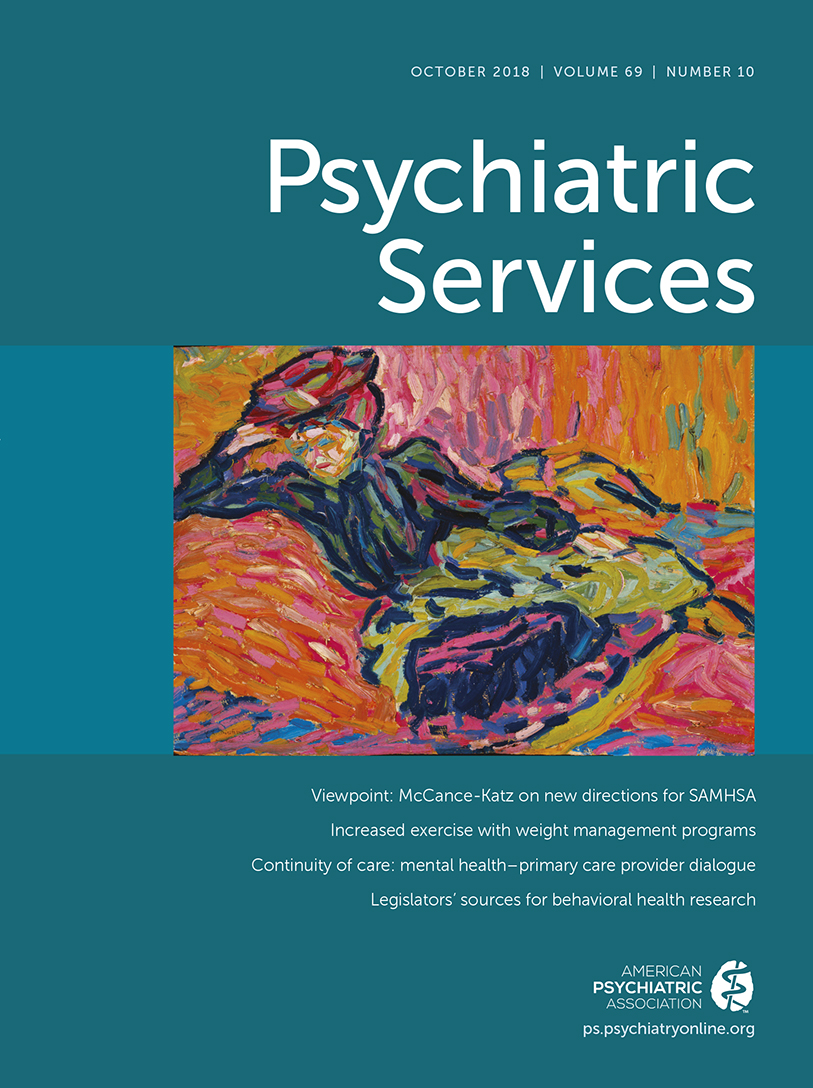Culturally Congruent Intensive Case Management Service for Three Refugee Communities
TO THE EDITOR: Premigration trauma and postmigration stressors increase risk of serious mental illness among refugees, which in turn undermines their settlement and community integration (1). The recovery of these individuals is further complicated by other challenges, including elevated levels of shame and stigma attached to mental illness and a lack of cultural congruence between the provider and client (2).
Afghanistan, Sri Lanka, and Somalia have consistently made up a high number of refugee claimants worldwide (3). In 1999, after consultation with community groups and stakeholders, the Toronto Branch of the Canadian Mental Health Association developed the Rehabilitation Action Program, an intensive case management (ICM) service targeting these three communities in Toronto. Funded by the Ontario government, the program provides culturally and linguistically appropriate ICM (4). Characterized by a low client-to-staff ratio and frequent and prolonged contact with clients, ICM addresses client needs with a focus to improve their quality of life through case coordination and direct services such as home visits and counseling. In the program, each client is matched with a case manager who speaks the client’s preferred language. The program also trains volunteer case aides from the local communities. After receiving training on mental health literacy and on assisting clients with independent living skills (5), the case aides, under supervision, are assigned to a client and aim to increase or maintain the client’s independent living skills.
Using administrative data of clients enrolled in the program from 2006 to 2010 (N=90; mean age 40.88±10.36 years; 69% women, N=62), we examined the effectiveness of the program by assessing the enrollment status two years after program admission, the estimated length of stay, as well as changes in length of hospitalization, medication adherence, and employment status from baseline to two-year follow-up. The research team developed and pilot-tested a review protocol (interrater reliability κ=.86).
Clients’ primary diagnosis was mood disorders (52%, N=47), followed by schizophrenia or psychotic disorders (47%, N=42) and personality disorders (1%, N=1). Only 10 (11%) indicated English as their primary language. At two-year follow-up, 22% (N=20) had met treatment objectives and left the program, whereas 42% (N=38) remained in the program. About 25% (N=23) withdrew from the program, 8% (N=7) relocated, and 2% (N=2) died. Kaplan-Meier survival analysis over the study period showed the estimated median length of stay has been 790 days (95% confidence interval=485.72–1,094.28).
Paired t tests comparing baseline and two-year follow-up data were conducted. Compared with a baseline measurement period ranging from six months to one year (online supplement), clients had fewer hospital visits by two years postadmission (t=3.60, df=42, p<.001; effect size [ES]=–.77), improved treatment adherence (t=2.46, df=43, p<.05; ES=.49), and better employment outcomes (t=3.07, df=57; p<.01; ES=.57). No change in hospitalization days was observed. Given the lack of control group in this study, the results provide some preliminary evidence for effectiveness of a culturally congruent ICM for refugee communities.
1 : Risk of psychosis in refugees: a literature review. Translational Psychiatry 7:e1149, 2017Crossref, Medline, Google Scholar
2 : Use of mental health–related services among immigrant and US-born Asian Americans: results from the National Latino and Asian American Study. American Journal of Public Health 97:91–98, 2007Crossref, Medline, Google Scholar
3 Refugee Population by Country or Territory of Origin. Washington, DC,
4 : Cultural competence in mental health care: a review of model evaluations. BMC Health Services Research 7:15, 2007Crossref, Medline, Google Scholar
5



